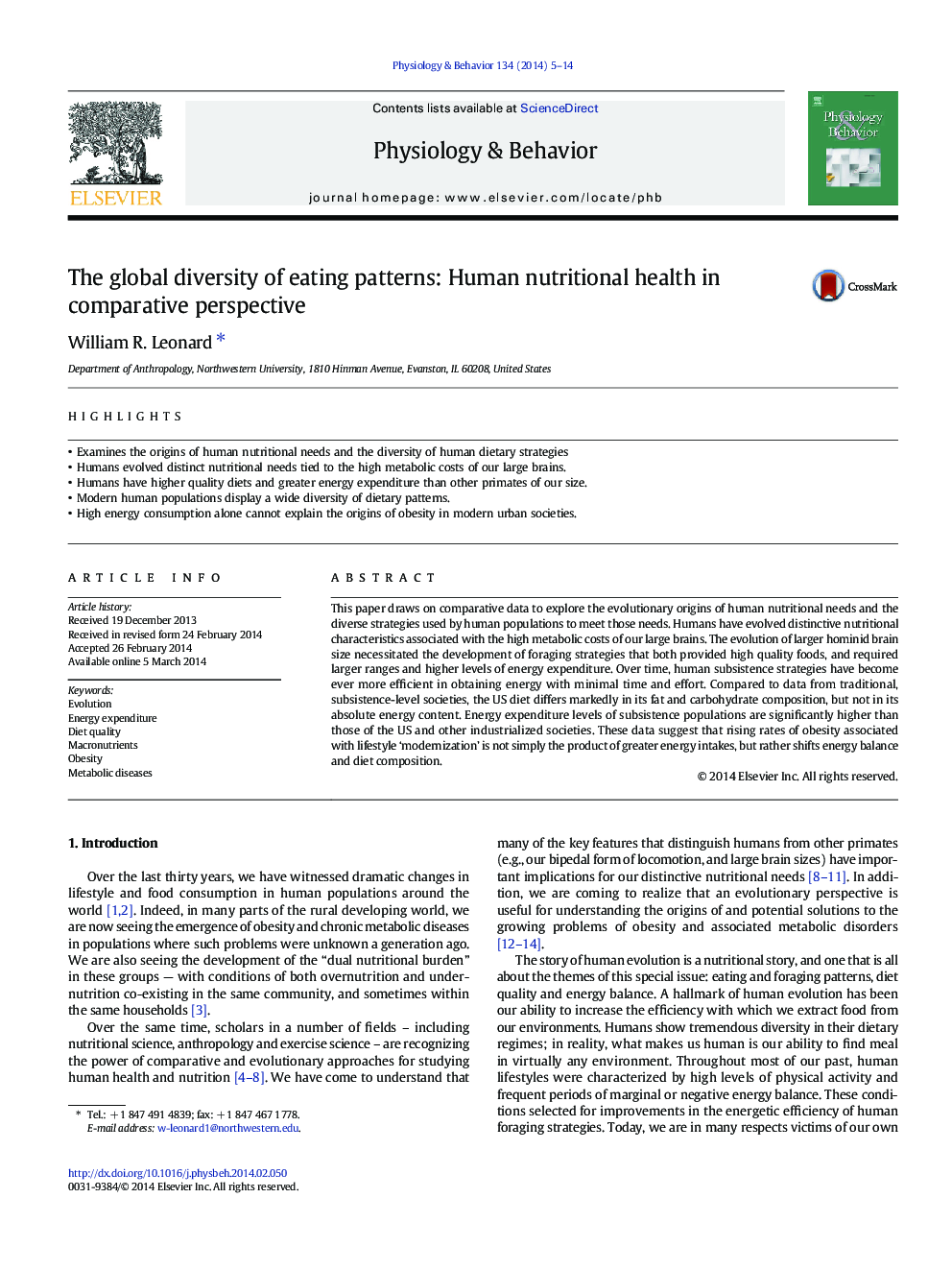| Article ID | Journal | Published Year | Pages | File Type |
|---|---|---|---|---|
| 2844163 | Physiology & Behavior | 2014 | 10 Pages |
•Examines the origins of human nutritional needs and the diversity of human dietary strategies•Humans evolved distinct nutritional needs tied to the high metabolic costs of our large brains.•Humans have higher quality diets and greater energy expenditure than other primates of our size.•Modern human populations display a wide diversity of dietary patterns.•High energy consumption alone cannot explain the origins of obesity in modern urban societies.
This paper draws on comparative data to explore the evolutionary origins of human nutritional needs and the diverse strategies used by human populations to meet those needs. Humans have evolved distinctive nutritional characteristics associated with the high metabolic costs of our large brains. The evolution of larger hominid brain size necessitated the development of foraging strategies that both provided high quality foods, and required larger ranges and higher levels of energy expenditure. Over time, human subsistence strategies have become ever more efficient in obtaining energy with minimal time and effort. Compared to data from traditional, subsistence-level societies, the US diet differs markedly in its fat and carbohydrate composition, but not in its absolute energy content. Energy expenditure levels of subsistence populations are significantly higher than those of the US and other industrialized societies. These data suggest that rising rates of obesity associated with lifestyle ‘modernization’ is not simply the product of greater energy intakes, but rather shifts energy balance and diet composition.
